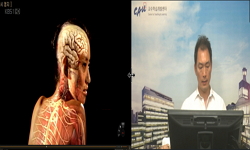공맹유학의 도덕론은 인간의 자연 감정에 기초한다. 공맹유학은 온전한 도덕 판단이 이루어지기 위해서는 사단과 같은 자연스러운 도덕 감정이 요구된다고 본다. 공맹유학에서 구체지의 한...
http://chineseinput.net/에서 pinyin(병음)방식으로 중국어를 변환할 수 있습니다.
변환된 중국어를 복사하여 사용하시면 됩니다.
- 中文 을 입력하시려면 zhongwen을 입력하시고 space를누르시면됩니다.
- 北京 을 입력하시려면 beijing을 입력하시고 space를 누르시면 됩니다.
https://www.riss.kr/link?id=A106155519
- 저자
- 발행기관
- 학술지명
- 권호사항
-
발행연도
2013
-
작성언어
Korean
-
주제어
virtues ; propositional cognition ; non-propositional cognition ; moral emotion ; Confucianism ; and moral judgment ; affect ; 해석 ; 정동 ; 인지 ; 명제 ; 동기 ; 도덕 감정 ; 덕 ; 공맹유학
-
등재정보
KCI등재
-
자료형태
학술저널
- 발행기관 URL
-
수록면
241-278(38쪽)
-
KCI 피인용횟수
7
- 제공처
- 소장기관
-
0
상세조회 -
0
다운로드
부가정보
국문 초록 (Abstract)
공맹유학의 도덕론은 인간의 자연 감정에 기초한다. 공맹유학은 온전한 도덕 판단이 이루어지기 위해서는 사단과 같은 자연스러운 도덕 감정이 요구된다고 본다. 공맹유학에서 구체지의 한 요소인 도덕 감정을 중시하는 이유는 그것이 덕을 얻는 데에 필수적이라고 보기 때문이다. 공맹유학은 도덕 감정의 실천 없이 덕을 획득하기 어려우며, 덕을 획득하지 못한다면 좋은 삶을 영위할 수 없다고 본다. 도덕 감정에 기초하여 덕의 획득을 추구하는 공맹유학의 윤리학적 관점은 다음과 같은 철학적 의미를 함축한다. 첫째, 도덕 판단에 요구되는 감정 능력의 결여는 실천 동기를 약화시킴으로써 덕의 획득을 방해한다. 도덕 감정이 속박(梏亡)받을 경우에 도덕적 기상이 쭈그러들고 만다. 그러한 경우를 사이코패스에게서 볼 수 있다. 사이코패스는 타인에 대한 공감 능력이 현저히 결여되어 있어 죄책감 등과 같은 도덕 감정이 온전히 형성되지 못함으로써 타인에 대한 비도덕적 공격 성향을 보인다. 둘째, 공맹유학에서 제시하는 도덕 감정은 명제적 인지 및 비명제적 인지를 통해 도덕 판단의 역할을 수행한다. 이해, 믿음, 해석 등을 수반한 도덕 감정에는 명제적 인지가 내포되어 있다. 가령 맹자가 제시한 유자입정의 상황에서 발생하는 측은지심의 감정에는 "순진한 아이가 위험에 처해 있다"는 명제적 인지가 내포되어 있다. 명제적 인지는 다양한 도덕 감정들이 왜 발생하는지와 관련해 믿음과 해석의 지평을 들추어준다. 다만, 모든 도덕 감정이 명제적 인지에 의해 촉발된다고 보기는 어렵다. 감정의 범주들 중에서 명제적 인지를 확인할 수 없는 경우들, 곧 신체의 본능적이고 즉흥적이고 선언어적인 정동(affect)으로서 도덕 감정도 있다. 정동을 통해 비명제적 판단이 가능하다는 것을 자폐아의 사례를 통해 알 수 있다. 왜냐하면 일부 자폐아들에게는 관점-소유의 명제적 인지 능력이 결여되어 있음에도 불구하고 신체적 정동을 통해 이타적 동기를 가질 수 있기 때문이다. 맹자는 양지양능(良知良能)으로서 정동 능력이 비명제적인 인지를 통해 도덕 판단의 역할을 수행할 수 있다고 보면서 정동의 역할을 중시한다. 셋째, 공맹유학의 도덕 실천은 타고난 사려를 통해 도덕 감정을 배양하고, 타고난 생리적 욕구에 과불급이 일어나지 않도록 절제함으로써 이루어진다. 공맹유학에서는 생각(思), 반성(反), 헤아림(權), 붙잡음(操), 보존(存), 구함(求), 확충(擴充), 다함(盡) 등과 같은 사려 능력을 통해 도덕 감정을 배양하고 생리적 욕구를 절제함으로써 덕을 획득하고자 한다.
다국어 초록 (Multilingual Abstract)
Confucian moral theory depends on human natural emotions such as the four feelings of sympathy (ce yin zhi xin 惻隱之心), shame and dislike (xiu wu zhi xin 羞惡之心), modesty (ci rang zhi xin 辭讓之心), and love of truth (shi fei zhi xin ...
Confucian moral theory depends on human natural emotions such as the four feelings of sympathy (ce yin zhi xin 惻隱之心), shame and dislike (xiu wu zhi xin 羞惡之心), modesty (ci rang zhi xin 辭讓之心), and love of truth (shi fei zhi xin 是非之心). The reason why Confucianism considers moral emotions as the necessary conditions for the moral judgment is that we ought to have them to get virtues. Confucianism takes moral sentimentalism which implies several ethical meanings as follows. First, a lack of moral emotions prevents us to get virtues. It is one of the concrete examples that psychopaths who have no sympathy towards others express immoral aggression. In this regard, Mengzi says that the moral spirit can be withered when our moral emotions are restricted. Second, Confucian moral emotions are entailed in moral judgment in forms of propositional cognition and non-propositional cognition. Moral emotion that implies propositional cognition is composed of understanding, belief, and construal. For example, Mengzi's sympathy of ce yin zhi xin implies the propositional cognition that "an innocent child is confronted with danger to be fallen into a wall." The propositional cognition lets us know what kinds of belief and construal we have when we show our moral emotions. However, it is not true that all moral emotions imply propositional cognition. We can also find that non-propositional cognition in affect implies moral judgment. Some autistic children can perform morally altruistic judgment with their affect although they lack capacity of propositional reasoning. Mengzi also lays emphasis on moral affect by suggesting that we have inborn moral sensibility (liang zhi liang neng 良知良能). Finally, Confucian moral practice is performed by development of inborn moral emotions and self-control of physical desires. The ability of thinking (si 思), reflecting (fan 反), considering (quan 權), preserving (cun 存), seeking (qiu 求), enlarging (kuo chong 擴充), and exerting (jin 盡) is a necessary condition for us to get virtues by developing moral emotions and adjusting physical desires.
참고문헌 (Reference)
1 정용환, "철학적 성찰로서 유교론" 철학과현실사 2011
2 정용환, "자기이해 과정에서 감성의 역할" 한국동서철학회 (55) : 77-117, 2010
3 데이비드 S. 니비슨, "유학의 갈림길" 철학과 현실사 2006
4 정용환, "유가 도덕론에서 의지, 감정, 품성에 관하여" 동양철학연구회 (68) : 189-223, 2011
5 정용환, "아크라시아 혹은 방심: 플라톤, 아리스토텔레스, 유가" 한국동서철학회 (52) : 31-57, 2009
6 앤거스 그레이엄, "도의 논쟁자들" 새물결 2003
7 하안(何晏), "논어주소(論語注疏)" 북경대학출판사 2000
8 조기(趙岐), "공손추상, 6장, In 맹자주소(孟子注疏)" 북경대학출판사 2000
9 蒙培元, "情感與理性" 중국인민대학출판사 2009
10 김명석, "『논어(論語)』의 정(情) 개념을 어떻게 이해할 것인가" 한국동양철학회 29 (29): 147-171, 2008
1 정용환, "철학적 성찰로서 유교론" 철학과현실사 2011
2 정용환, "자기이해 과정에서 감성의 역할" 한국동서철학회 (55) : 77-117, 2010
3 데이비드 S. 니비슨, "유학의 갈림길" 철학과 현실사 2006
4 정용환, "유가 도덕론에서 의지, 감정, 품성에 관하여" 동양철학연구회 (68) : 189-223, 2011
5 정용환, "아크라시아 혹은 방심: 플라톤, 아리스토텔레스, 유가" 한국동서철학회 (52) : 31-57, 2009
6 앤거스 그레이엄, "도의 논쟁자들" 새물결 2003
7 하안(何晏), "논어주소(論語注疏)" 북경대학출판사 2000
8 조기(趙岐), "공손추상, 6장, In 맹자주소(孟子注疏)" 북경대학출판사 2000
9 蒙培元, "情感與理性" 중국인민대학출판사 2009
10 김명석, "『논어(論語)』의 정(情) 개념을 어떻게 이해할 것인가" 한국동양철학회 29 (29): 147-171, 2008
11 Kim, Myeong-seok, "What Ceyin Zhi Xin Really Is" 9 (9): 2010
12 Norden, Bryan, W. Van, "Virtue Ethics and Consequentialism in Early Chinese Philosophy" Cambridge University Press 2007
13 Solomon, Robert C., "Thoughts and Feelings: What Is a "Cognitive Theory" of the Emotions, and Does It Neglect Affectivity? (2001), In Not Passion's Slave" Oxford University Press 2003
14 Lau, D. C., "Theories of Human Nature in Mencius and Xunzi, In Virtue, Nature, and Moral Agency in the Xunzi" Hackett 2000
15 Nivison, David S., "The Ways of Confucianism: Investigations in Chinese Philosophy" Open Court 1996
16 Ben-Ze'ev, Aaron, "The Subtlety of Emotions" MIT Press 2001
17 Blair, James, "The Psychopath: Emotion and the Brain" Blackwell Publishing 2005
18 Cole, Jonathan, "The Invisible Smile: Living Without Facial Expression" Oxford University Press 2009
19 Nussbaum, Martha C., "The Fragility of Goodness" Cambridge University Press 2001
20 Slote, Michael, "The Ethics of Care and Empathy" Routledge 2007
21 Graham, A. C., "The Background of Mencian Theory of Human Nature, In Studies in Chinese Philosophy and Philosophical Literature" Institute of East Asian Philosophies 1986
22 Nichols, Shaun, "Sentimental Rules" Oxford University Press 2004
23 Bruya, Brian, "Qing 情 and Emotion in Early Chinese Thought, In Chinese Philosophy and the Trends of the 21st Century Civilization" Commercial Press 2003
24 Solomon, Robert C., "On Emotions as Judgments (1988), In Not Passion's Slave" Oxford University Press 2003
25 Shun, Kwong-loi, "Mencius on Jen-hsing" University of Hawai'i Press 47 (47): 1997
26 Roberts, Robert C., "Emotions: An Essay in Aid of Moral Psychology" Cambridge University Press 2003
동일학술지(권/호) 다른 논문
-
- 대한철학회
- 김보현(Kim, Bo-hyun)
- 2013
- KCI등재
-
- 대한철학회
- 김상현(Kim, Sang-hyun)
- 2013
- KCI등재
-
- 대한철학회
- 김우진(Kim, Woo-jin)
- 2013
- KCI등재
-
- 대한철학회
- 김효섭(Kim, Hyo-sup)
- 2013
- KCI등재
분석정보
인용정보 인용지수 설명보기
학술지 이력
| 연월일 | 이력구분 | 이력상세 | 등재구분 |
|---|---|---|---|
| 2028 | 평가예정 | 재인증평가 신청대상 (재인증) | |
| 2022-01-01 | 평가 | 등재학술지 유지 (재인증) |  |
| 2019-01-01 | 평가 | 등재학술지 유지 (계속평가) |  |
| 2016-01-01 | 평가 | 등재학술지 선정 (계속평가) |  |
| 2015-12-01 | 평가 | 등재후보로 하락 (기타) |  |
| 2011-01-01 | 평가 | 등재학술지 유지 (등재유지) |  |
| 2009-01-01 | 평가 | 등재학술지 유지 (등재유지) |  |
| 2007-01-01 | 평가 | 등재학술지 유지 (등재유지) |  |
| 2004-01-01 | 평가 | 등재학술지 선정 (등재후보2차) |  |
| 2003-01-01 | 평가 | 등재후보 1차 PASS (등재후보1차) |  |
| 2001-07-01 | 평가 | 등재후보학술지 선정 (신규평가) |  |
학술지 인용정보
| 기준연도 | WOS-KCI 통합IF(2년) | KCIF(2년) | KCIF(3년) |
|---|---|---|---|
| 2016 | 0.39 | 0.39 | 0.39 |
| KCIF(4년) | KCIF(5년) | 중심성지수(3년) | 즉시성지수 |
| 0.38 | 0.35 | 0.984 | 0.2 |




 KCI
KCI DBpia
DBpia







